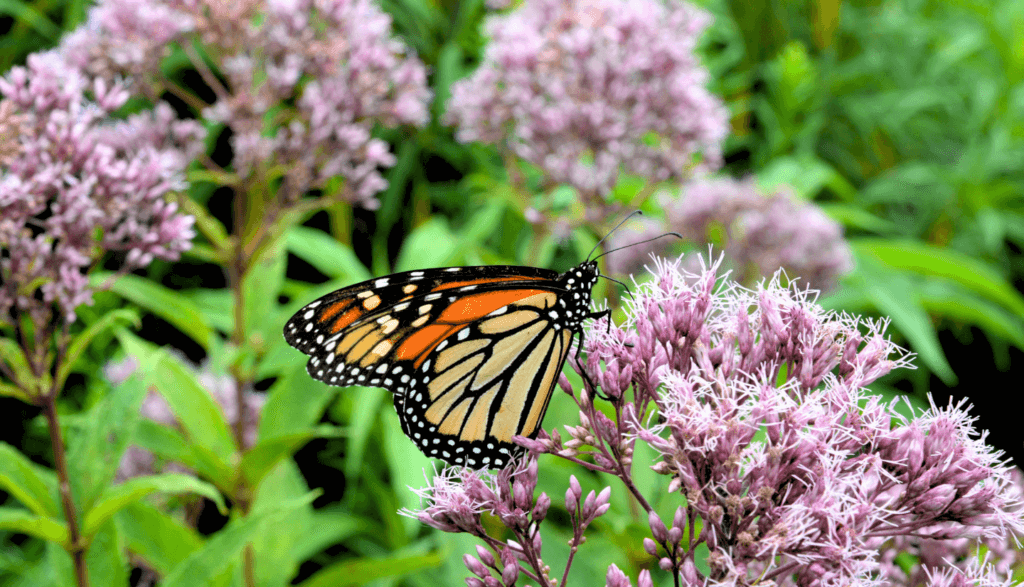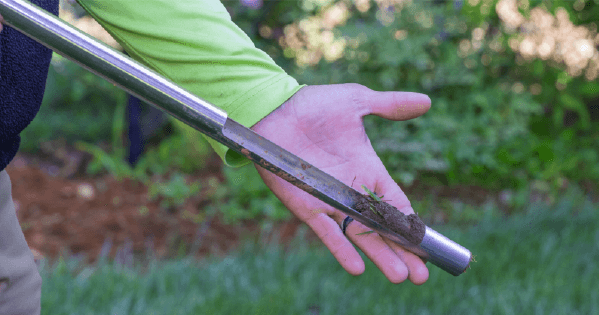Planting a Pollinator-Friendly Garden

What makes those Georgia peaches and pears so sweet? It’s likely the power of nature’s springtime pollinators doing what they do best. As you get the urge to plant your spring garden, consider incorporating some pollinator-friendly flowers, shrubs, and trees to attract bees, butterflies, and birds. As they pollinate fruit trees, vegetable gardens and crops, these creatures promote biodiversity and contribute in great ways to seed production.
Here are some steps you can take to make your garden a welcoming habitat for pollinators:
- Choose Native Plants: Select native plants that are adapted to Georgia’s climate and soil conditions. Native plants provide food and habitat for local pollinators and are often low-maintenance. Some examples of native plants for Georgia include milkweed, coneflower, bee balm, black-eyed Susan, and native grasses. Let’s not forget Georgia peach, pear, and pomegranate trees.
- Provide a Variety of Flowers: Plant a diverse range of flowers that bloom at different times throughout the year. This ensures that pollinators have access to nectar and pollen throughout the growing season. Include flowers of various shapes, sizes, and colors to attract different types of pollinators. Cone flowers, honeysuckle, asters and marigolds are good to grow in your Georgia garden to attract pollinators.
- Avoid Pesticides: Minimize or eliminate the use of pesticides in your garden, as they can harm pollinators and other beneficial insects. Instead, opt for natural pest control methods such as handpicking pests, using insecticidal soaps, or encouraging natural predators like ladybugs and lacewings.
- Create Shelter: Provide shelter for pollinators by including features such as shrubs, trees, and nesting boxes. Dead trees, brush piles, and hollow stems also serve as nesting sites for solitary bees and other beneficial insects.
- Include Water Sources: Pollinators need water for drinking and maintaining hydration. Include a shallow water source, such as a bird bath or shallow dish filled with pebbles, to provide a safe drinking spot for pollinators.
- Educate Yourself: Learn about the specific pollinators in your area and their habitat requirements. Understanding the needs of local pollinators will help you design a garden that supports their populations.
By following these tips, you can create a vibrant and welcoming pollinator-friendly garden that benefits both local wildlife and the environment in Georgia.
In addition to the benefits of seed production, pollinators, such as birds, are also predators that can keep undesirable pests such as aphids and small rodents from damaging your plants. Shrubs such as butterfly bushes and trees such as apples and cherries, also grow well in Georgia and promote pollinator activity.
Simply Green Can Help!
If you need help planning your spring garden, contact a lawn care expert who can give you more advice on plants that will beautify your landscape and attract pollinators. They also will help you determine the best lawn care methods to keep your landscape healthy and free of fungus and diseases.
About Simply Green Lawn Care

Simply Green aims to provide the highest quality lawn care, mosquito control, and lawn pest control services to Georgia residents.
We are locally owned and operated which allows us to be accessible, attentive, and responsive for customers in Georgia.
Our well-trained team is easy to work with and determined to exceed expectations.
All our plant health care specialists are Georgia Department of Agriculture Certified and maintain their Category 24 applicators license.


